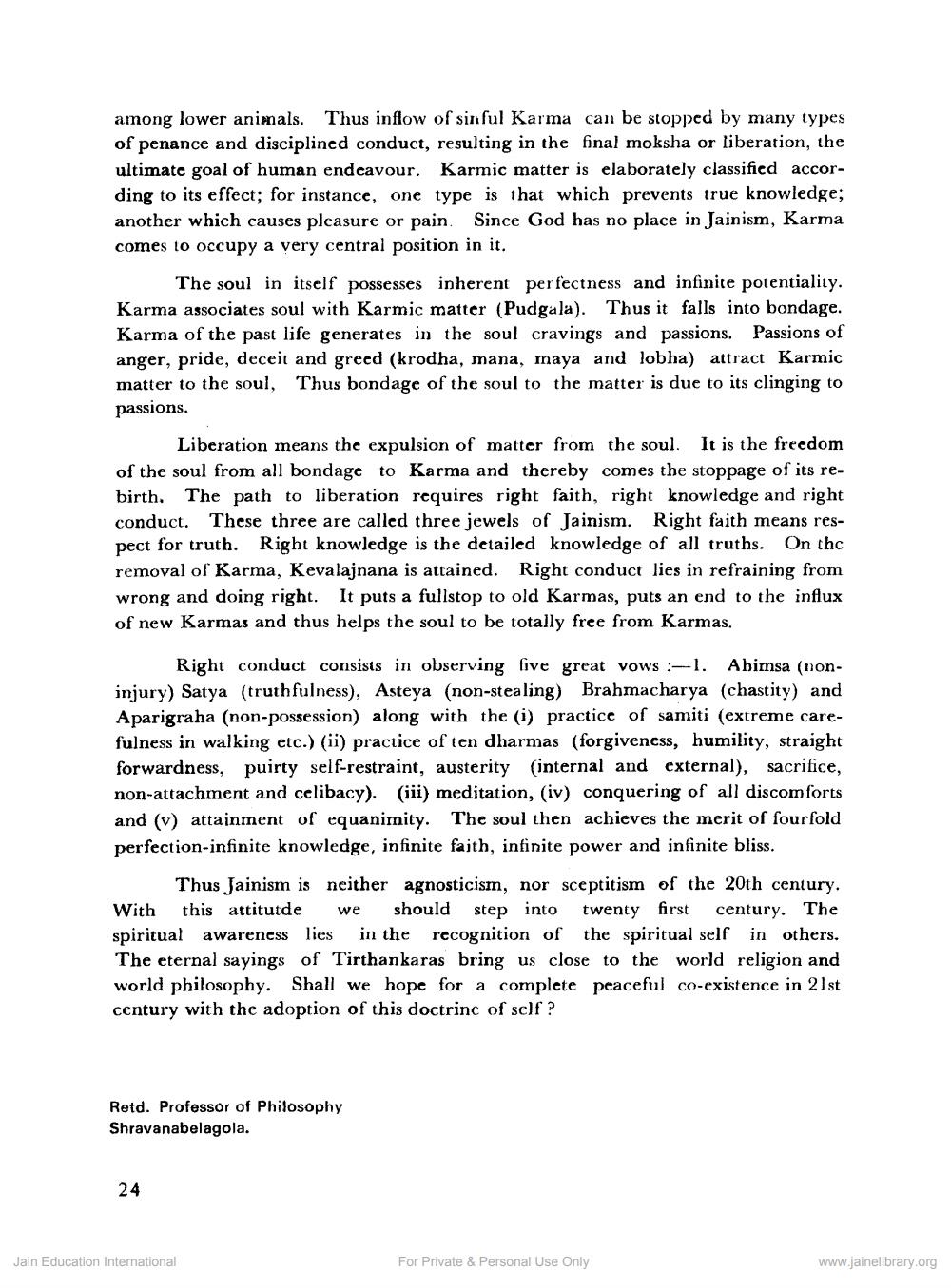________________
among lower animals. Thus inflow of sinful Karma can be stopped by many types of penance and disciplined conduct, resulting in the final moksha or liberation, the ultimate goal of human endeavour. Karmic matter is elaborately classified according to its effect; for instance, one type is that which prevents true knowledge; another which causes pleasure or pain. Since God has no place in Jainism, Karma comes to occupy a very central position in it.
The soul in itself possesses inherent perfectness and infinite potentiality. Karma associates soul with Karmic matter (Pudgala). Thus it falls into bondage. Karma of the past life generates in the soul cravings and passions. Passions of anger, pride, deceit and greed (krodha, mana, maya and lobha) attract Karmic matter to the soul, Thus bondage of the soul to the matter is due to its clinging to passions.
Liberation means the expulsion of matter from the soul. It is the freedom of the soul from all bondage to Karma and thereby comes the stoppage of its rebirth. The path to liberation requires right faith, right knowledge and right conduct. These three are called three jewels of Jainism. Right faith means respect for truth. Right knowledge is the detailed knowledge of all truths. On the removal of Karma, Kevalajnana is attained. Right conduct lies in refraining from wrong and doing right. It puts a fullstop to old Karmas, puts an end to the influx of new Karmas and thus helps the soul to be totally free from Karmas.
Right conduct consists in observing five great vows :-1. Ahimsa (noninjury) Satya (truthfulness), Asteya (non-stealing) Brahmacharya (chastity) and Aparigraha (non-possession) along with the (i) practice of samiti (extreme carefulness in walking etc.) (ii) practice of ten dharmas (forgiveness, humility, straight forwardness, puirty self-restraint, austerity (internal and external), sacrifice, non-attachment and celibacy). (iii) meditation, (iv) conquering of all discomforts and (v) attainment of equanimity. The soul then achieves the merit of fourfold perfection-infinite knowledge, infinite faith, infinite power and infinite bliss.
Thus Jainism is neither agnosticism, nor sceptitism of the 20th century. With this attitutde we should step into twenty first century. The spiritual awareness lies in the recognition of the spiritual self in others. The eternal sayings of Tirthankaras bring us close to the world religion and world philosophy. Shall we hope for a complete peaceful co-existence in 21st century with the adoption of this doctrine of self?
Retd. Professor of Philosophy Shravanabelagola.
24
Jain Education International
For Private & Personal Use Only
www.jainelibrary.org




